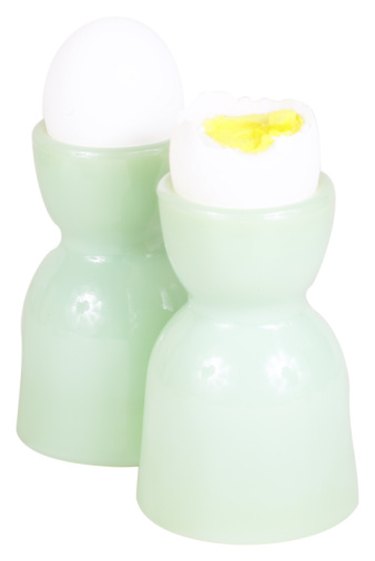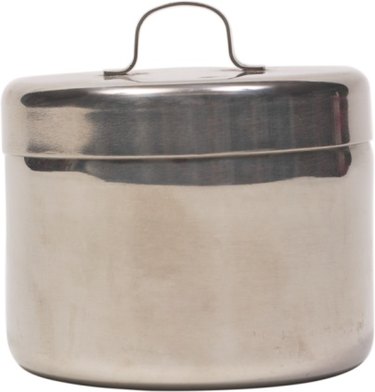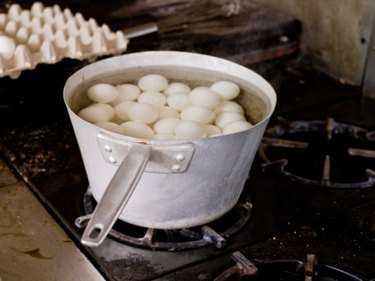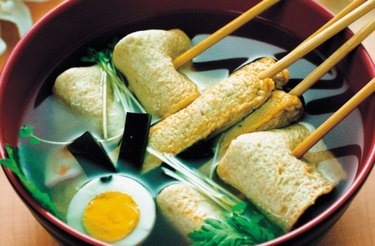
The hard-boiled egg is an excellent source of protein that is also quite versatile. Eat hard-boiled eggs with salt and pepper for a midday snack, or simmer eggs in a variety of Indian style curries. Try different recipes for deviled eggs once you master the paprika and mayonnaise-based classic. Olive tapenade or anchovies are good choices. It's easy, as long as you remember the key to great hard-boiled eggs is the right kind of pan.
Pan with Cover
Video of the Day

Use a pot made of sturdy stainless steel only. Harder materials like cast iron can cause eggs to crack while raw and make a mess; for this reason, you should not use dutch ovens. Glassware is unsafe because it shatters when placed on top of the stove. Sometimes stainless steel pots have lids made of glass or rubber, and this is fine just as long as the pot itself is stainless steel.
Video of the Day
Pan Size
For hard-boiled eggs, you will want a large 6 to 8 qt. stock pot with a lid. A 6 qt. stock pot works for up to 6 eggs, and an 8 qt. stock pot works for as many as 12 eggs at a time. You may see larger stock pots in home goods stores, but these are inefficient for heating water and unnecessary when making hard-boiled eggs.
Cooking

Place raw eggs in the pot and submerge in cool water; make sure that the water covers the eggs by about 2 to 3 inches. Turn the oven burner on high, and bring pot to a quick boil. Allow eggs to boil for one minute, and turn off heat. Cover the stock pot, and let eggs rest over the cooling stove for eight to 10 minutes. An eight-minute resting time yields eggs that are soft inside, while 10 minutes yields a hard-boiled egg.
After Cooking

Remove the eggs from the warm stock pot, and submerge them immediately in an iced water bath. This prevents the yolk from developing an unappetizing green-gray hue. When cooled, remove and peel the eggs for use. If you like, return peeled, halved eggs to the stock pot without washing to simmer with soups and curries. An Asian soy sauce-based vegetable soup or an Indian style curry works well. Left to simmer, hard-boiled eggs absorb flavors nicely.